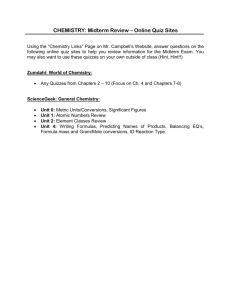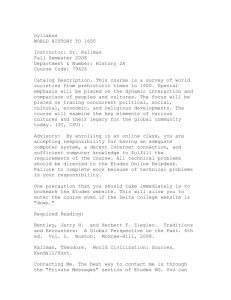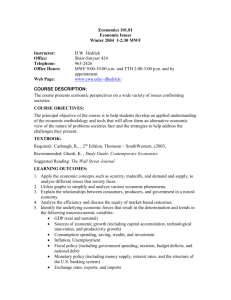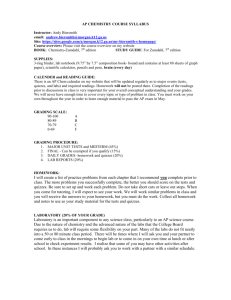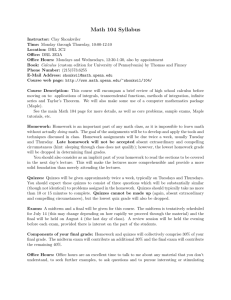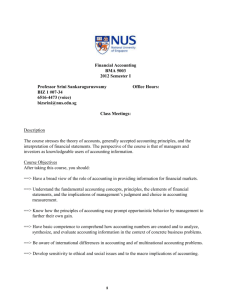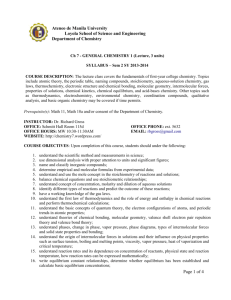spuqc
advertisement
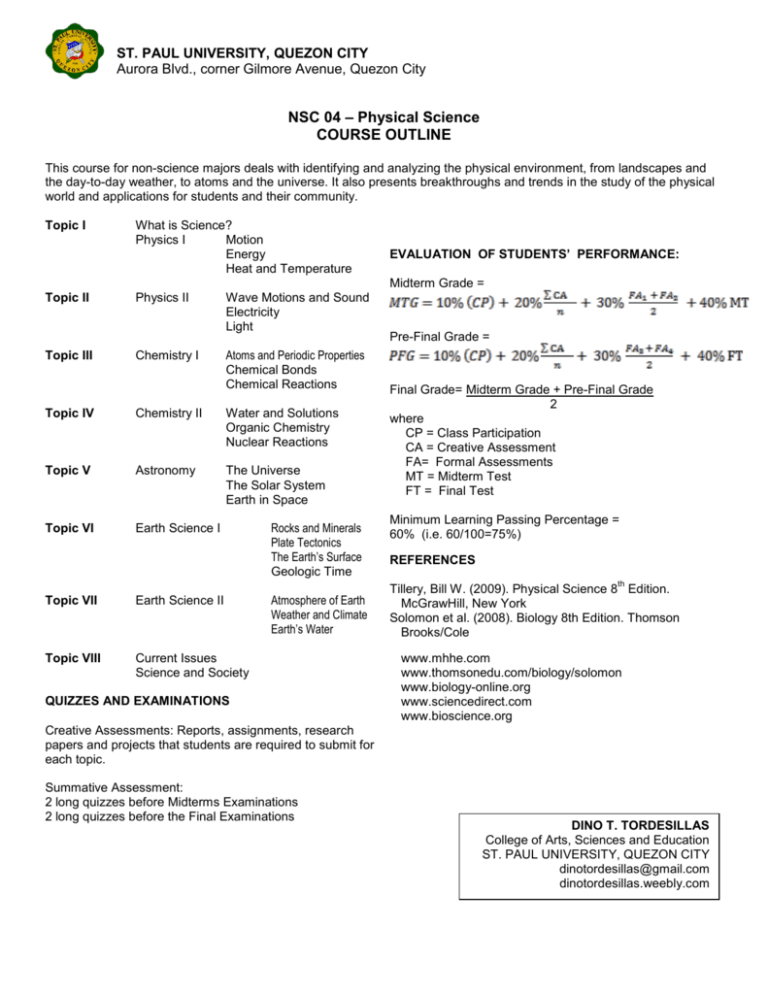
ST. PAUL UNIVERSITY, QUEZON CITY Aurora Blvd., corner Gilmore Avenue, Quezon City NSC 04 – Physical Science COURSE OUTLINE This course for non-science majors deals with identifying and analyzing the physical environment, from landscapes and the day-to-day weather, to atoms and the universe. It also presents breakthroughs and trends in the study of the physical world and applications for students and their community. Topic I What is Science? Physics I Motion Energy Heat and Temperature EVALUATION OF STUDENTS’ PERFORMANCE: Midterm Grade = Topic II Topic III Physics II Chemistry I Wave Motions and Sound Electricity Light Atoms and Periodic Properties Chemical Bonds Chemical Reactions Topic IV Chemistry II Water and Solutions Organic Chemistry Nuclear Reactions Topic V Astronomy The Universe The Solar System Earth in Space Topic VI Earth Science I Rocks and Minerals Plate Tectonics The Earth’s Surface Geologic Time Pre-Final Grade = Final Grade= Midterm Grade + Pre-Final Grade 2 where CP = Class Participation CA = Creative Assessment FA= Formal Assessments MT = Midterm Test FT = Final Test Minimum Learning Passing Percentage = 60% (i.e. 60/100=75%) REFERENCES th Topic VII Earth Science II Topic VIII Current Issues Science and Society Atmosphere of Earth Weather and Climate Earth’s Water QUIZZES AND EXAMINATIONS Tillery, Bill W. (2009). Physical Science 8 Edition. McGrawHill, New York Solomon et al. (2008). Biology 8th Edition. Thomson Brooks/Cole www.mhhe.com www.thomsonedu.com/biology/solomon www.biology-online.org www.sciencedirect.com www.bioscience.org Creative Assessments: Reports, assignments, research papers and projects that students are required to submit for each topic. Summative Assessment: 2 long quizzes before Midterms Examinations 2 long quizzes before the Final Examinations DINO T. TORDESILLAS College of Arts, Sciences and Education ST. PAUL UNIVERSITY, QUEZON CITY dinotordesillas@gmail.com dinotordesillas.weebly.com
